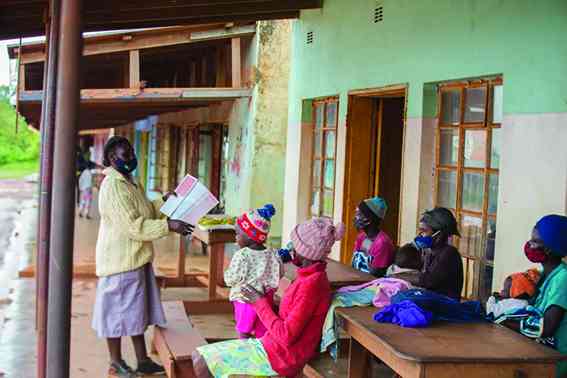
IN yesterday’s NewsDay edition we carried a front page article titled: Zim’s census figures ‘questionable’ which raised questions over the accuracy of our national population census figures.
What has raised the questions is the fact that the country’s last census count in April 2022 revealed that there are thousands of deaths occurring in rural areas are not being officially recorded.
The 2022 census revealed that of the 78 384 deaths in rural Zimbabwe 64,7% of the deaths were registered, while 30,3% were not. Thirty percent is not a small number, especially given that enumerators managed to capture that in the 10 days they were counting the country’s population. Imagine what more they could have unearthed if they had been given more time in the countryside?
The figures are quite telling in that they expose the sorry state of the country’s rural areas where ironically we are always told that the majority of the population resides. This begs the question: If rural areas are home to the majority of the country’s population, why are they so neglected to the point of lacking basic infrastructure to capture all the deaths occurring there?
Added to this anomaly is another fact that thousands of births are also not being recorded as they occur and are only captured years later when parents want to send their children to school.
Why are there so few places to register births and deaths in rural areas where the majority of our people live?
We need not emphasise the fact that demographic data is a key tool to guide planning, policy development and decision making, which means that demographic processes need to be thorough in order for a nation to track its progress and map its development trajectory.
So, given the obvious gap in data capturing in rural areas, the country’s many blueprints, such as achieving an upper-middle-income economy status by 2030 become red herrings: Huge pies in the clouds.
- Mavhunga puts DeMbare into Chibuku quarterfinals
- Bulls to charge into Zimbabwe gold stocks
- Ndiraya concerned as goals dry up
- Letters: How solar power is transforming African farms
Keep Reading
That many deaths are not being registered in rural areas is a serious indictment on government which is clearly failing our rural folk by not affording them access to such basics as places to register their born and dead.
This means our rural areas have largely been abandoned, yet ironically for the past 44 years the ruling Zanu PF party’s stay in power has been guaranteed by the rural folk. It is more than strange that the Zanu PF government has apparently deserted its so called rural stronghold by denying them basic births and deaths registration centres as well as other key needs.
In most cases, rural folk have to travel long distances to register their births and deaths, either by foot or using expensive transport which many can hardly afford.
It is indefensible on the part of our government that our rural areas have been left behind all these years and are definitely not aboard the train to the upper-middle-income economy promised land.
As it stands, come 2030 our rural area will still be light years away in the dark ages of underdevelopment, thanks to a government which seems averse to being guided by demographic data in making its policy decisions.










